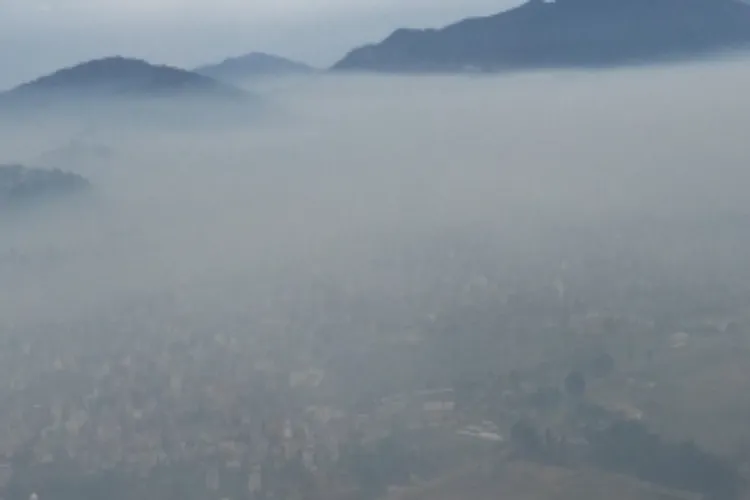Kathmandu
The International Centre for Integrated Mountain Development (ICIMOD) is deeply concerned about the deteriorating air quality in Nepal, Bangladesh, Myanmar, and parts of India.
The Kathmandu-based ICIMOD is a regional inter-governmental learning and knowledge-sharing centre serving the eight regional member countries of the Hindu Kush Himalaya region -- Afghanistan, Bangladesh, Bhutan, China, India, Myanmar, Nepal and Pakistan.
The spike in air pollution in the region is due to an increase in forest fires, which are increasing in number and severity due to climate change, and residential biomass burning.
Recent data from our experts reveal hazardous levels of particulate matter (PM), posing a severe risk to human health, the organization said on Wednesday, as an organization dedicated to sustainable mountain development, ICIMOD is deeply concerned about the impacts of air pollution on human health and the environment.
In Kathmandu, the PM2.5 levels exceeded 205 on April 11, with PM10 levels reaching a staggering 430 just two days later.
"These alarming data points highlight the urgent need for action to address this critical issue. Air pollution poses severe threats to human health -- contributing to neonatal morbidity, stunting and learning delays in children, and with prolonged exposure linked to respiratory illnesses, heart diseases, and other health complications, especially for vulnerable populations," the regional organisation said.
"Worldwide, air pollution is responsible for more deaths annually than Covid-19 to date," says Bhupesh Adhikary, Senior Air Quality Specialist, at ICIMOD.
"Despite this catastrophic death toll, we aren't tackling this invisible killer with anything like the same energy. It's time we put efforts to improve air quality on a war footing. The good news is that we know what is causing air pollution in our region, and how to make rapid progress to reduce our exposure to pollutants. We urge governments, donors, and NGOs to work with us to build a coalition to really drive action on clean air."
Rising temperatures are causing glaciers in the region to melt at an alarming rate: if global warming exceeds 2 degrees Celsius, it will result in losing 50 per cent of the glaciers in the region, leading to changes in river flows which can have serious consequences for freshwater biodiversity, agriculture, drinking water, and other human needs.
Black carbon or soot emitted from forest fires and burning crop residues after harvest can accelerate the melting of high mountain glaciers, further contributing to their decline.
ICIMOD works with our partners to generate both ground-based observation data and satellite/model-based data on air quality. These evidence are critical for policy formulation and implementation.

